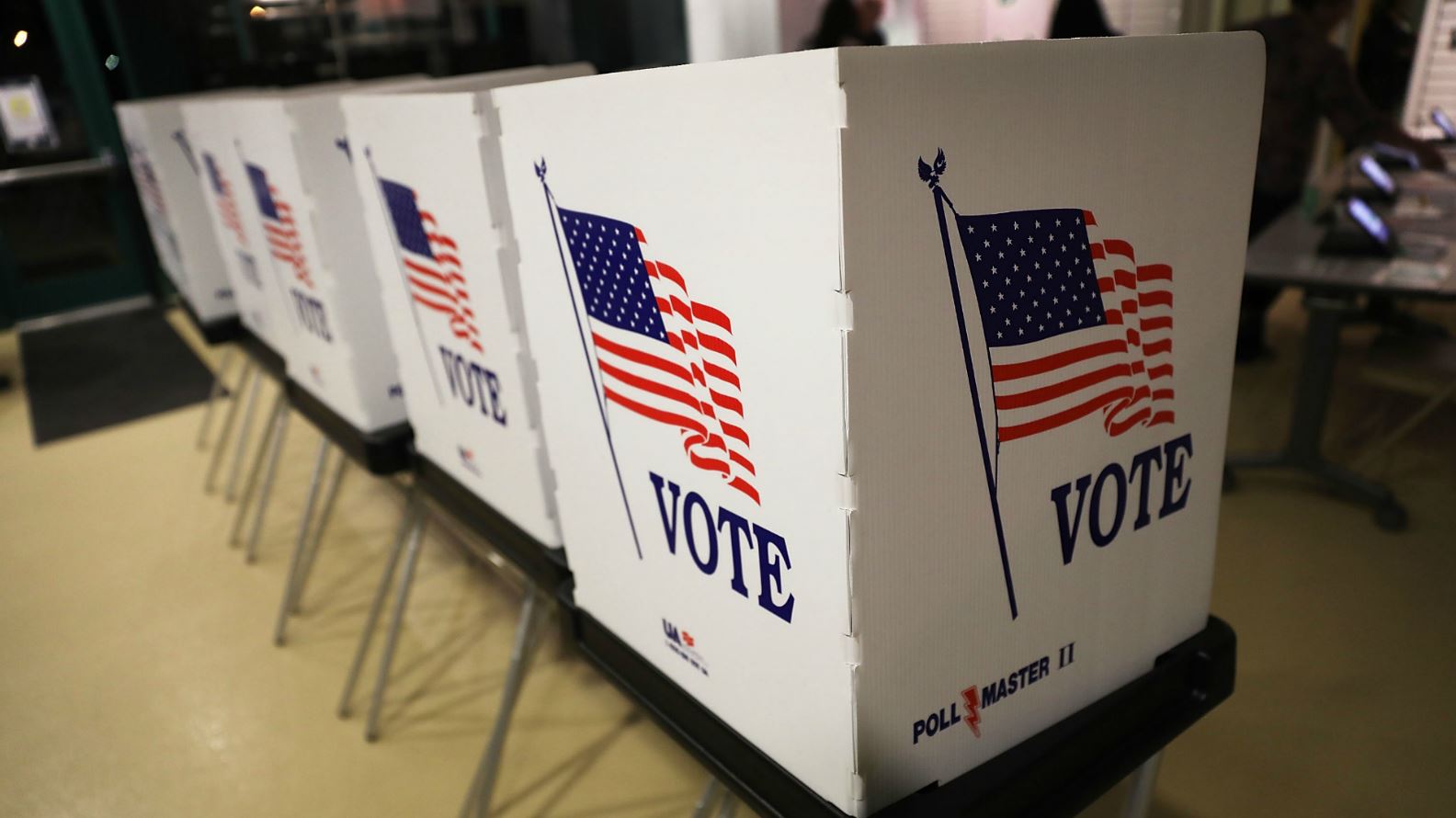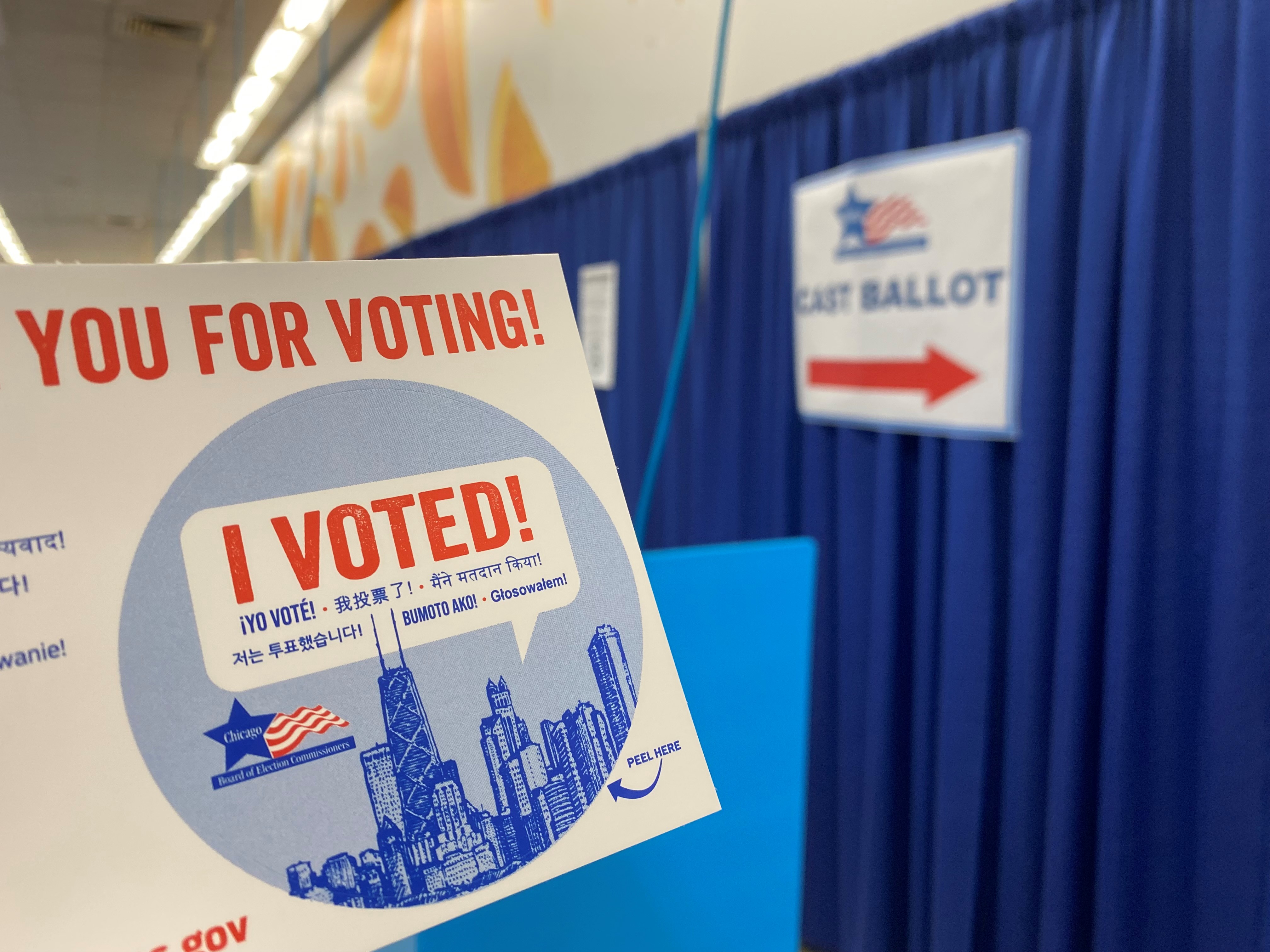With nearly all precincts currently reporting vote totals for the Workers' Rights Amendment, also known as Amendment 1, it appears a final determination on whether or not the measure passed could be near.
Amendment 1, a measure that would add protections to the state constitution for workers seeking to unionize — and also would prohibit state lawmakers from passing "right-to-work" laws — has been trending toward passing, with supporters of the measure touting a victory.
The results of the amendment have yet to be projected by the Associated Press. The Illinois State Board of Elections is set to gather data from local election authorities during an official statewide canvas beginning next week.
There are two different ways that the amendment can ultimately pass: The first would be if it receives 60% support from those casting votes directly on the measure. The second would be if it receives “yes” votes on more than 50% of ballots cast throughout the state during the election.
Feeling out of the loop? We'll catch you up on the Chicago news you need to know. Sign up for the weekly Chicago Catch-Up newsletter here.
As of Monday at 1:30 p.m., 99% of precincts reporting, the yes vote stands at 2,119,556. That represents 58% the vote totals so far.
Illinois labor unions have released statements celebrating its passage, with the group Vote Yes for Workers' Rights saying Monday it "remains firmly on track for passage."
"As of Monday morning, the Workers’ Rights Amendment has received more than 2,110,000 yes votes. That amounts to more than 58% on the question, and nearly 53% of everyone voting in the 2022 election," the group said.
The SEIU Healthcare Illinois union called it a “testament to the collective power of working people.”
“Voters across the state reaffirmed that Illinois is a state by and for working people, and they chose to protect working families over corporate interests,” the group said. “By enshrining workers’ rights into our state’s constitution, future generations of Illinois workers will continue to have a voice on the job to fight for livable wages, workplace safety, paid leave and more.”
Read more: What changes if the Illinois Workers' Rights Amendment Passes?
The Illinois Policy Institute, a conservative thinktank that has criticized the bill and argued that it could potentially pave the way for increased property taxes, said last week that results were "too close to call."
“They tried to sneak a hidden tax hike by voters,” the group said. “The fact that the vote (was too close to call) speaks to Illinoisans’ distrust in enshrining costly new provisions into the constitution that could handcuff them for years to come.”
According to NBC affiliate KSDK in St. Louis, the IPI’s argument that the amendment would raise property taxes by $2,100 over the next four years is based on a steady increase in property taxes that has been ongoing since 2010, and therefore isn’t directly tied to the bill.
Still, opponents of the amendment argued that increased bargaining power in the hands of public-sector employees could still require tax increases to help pay for higher wages and more benefits.
If the amendment ultimately passes, then it would go into effect almost immediately, and its language would be inserted into the state’s constitution.




